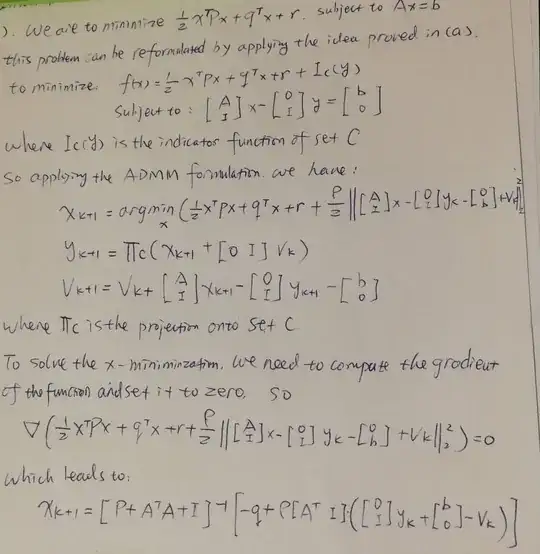I was reading the textbook about ADMM and came across some special cases without proof, which is really interesting so I was trying to prove them. I did a couple but had some trouble getting this one so please help. Thank you in advance
Considering x-update when A=I
$x^+=argmin_x(f(x)+(ρ/2)∣∣x−v∣∣_2^2)=prox_{f,ρ}(v)$.
The special case to be proved is $f(x)=(1/2)x^TPx+q^Tx+r, x^+:= (P+{\rho}A^TA)^{-1}({\rho}A^Tv-q)$
The attached photo shows what I have tried so far, I think I am close but there is something not right.
